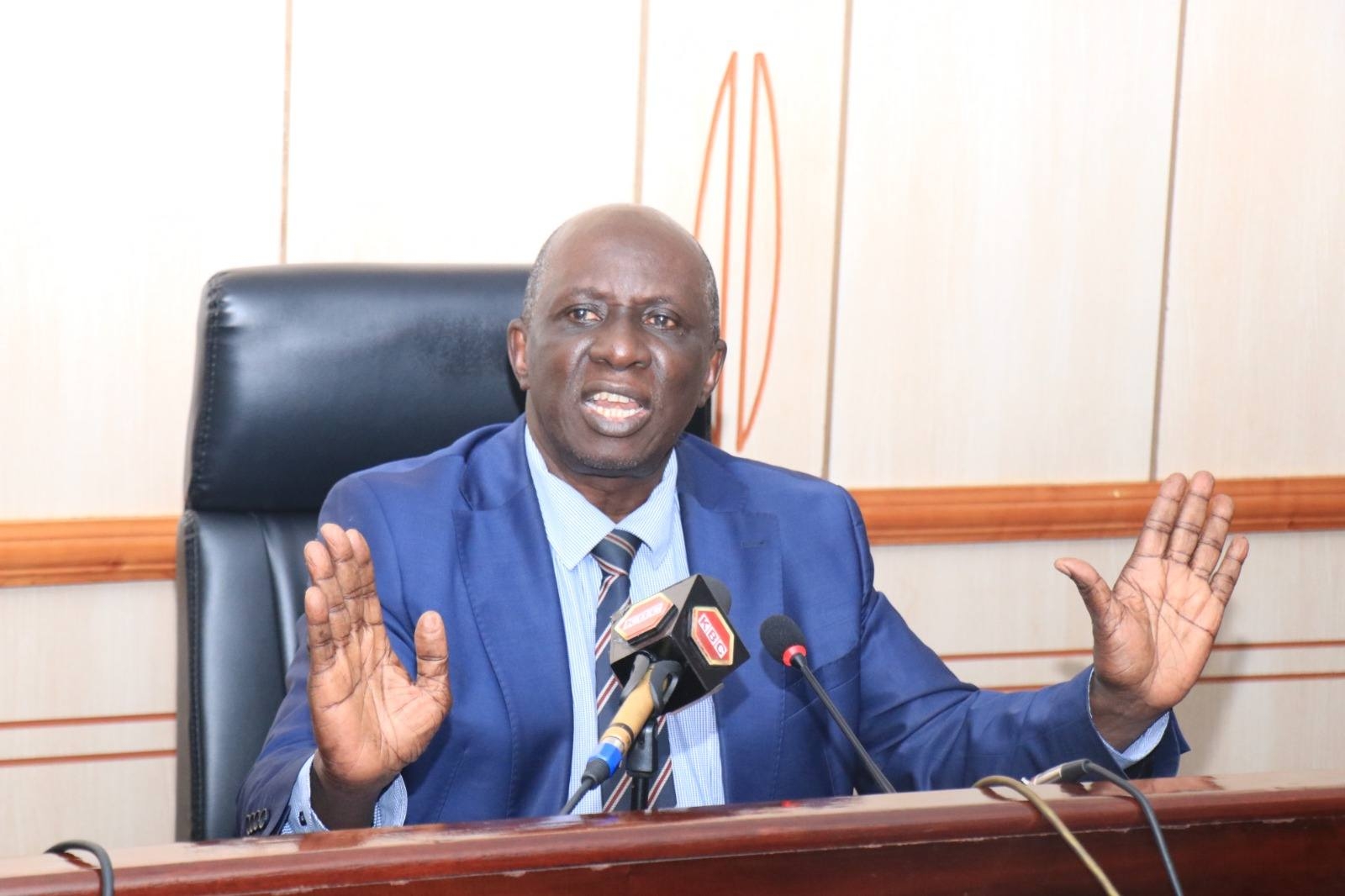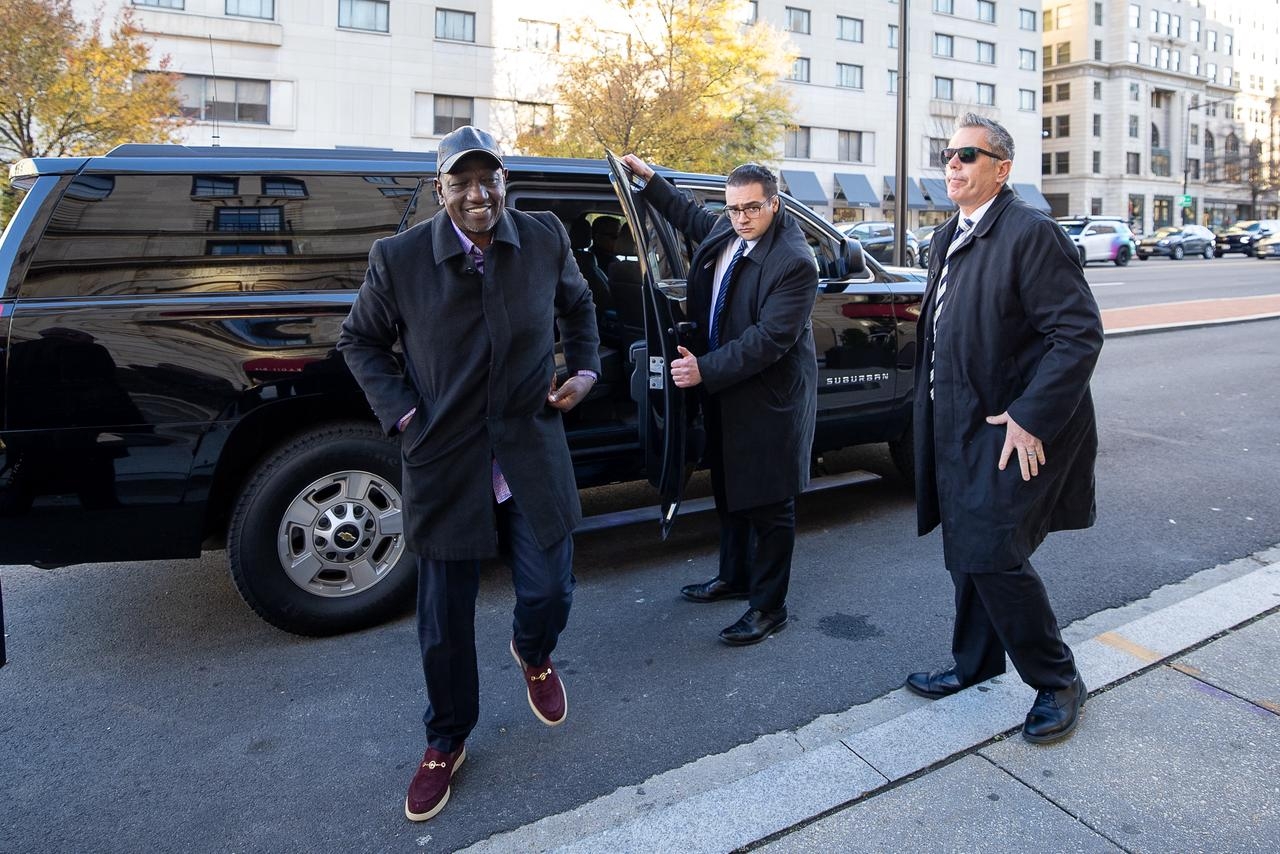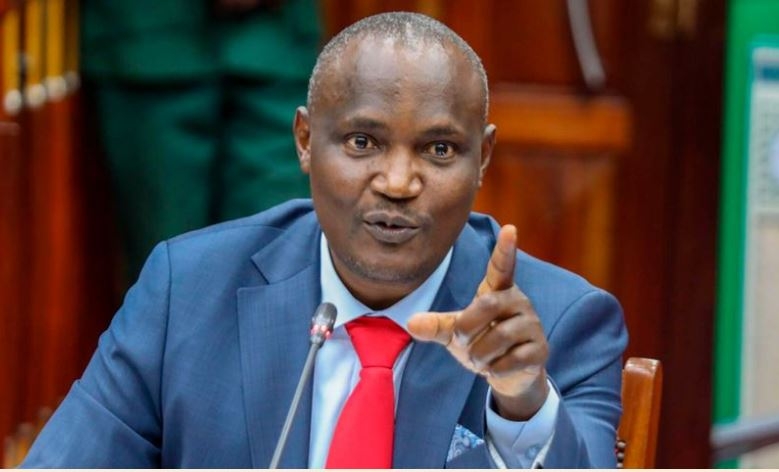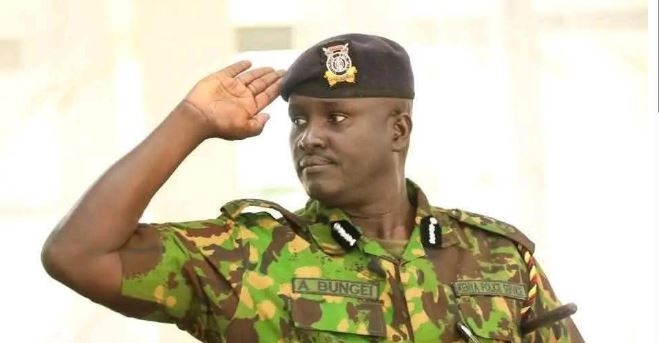First, kindly receive the Condolences of CJ Emeritus, Prof Willy Mutunga, who would have loved to be here because of his long-standing respect and admiration of Justice Majanja, but because of exigencies of duties he is attending a Pan Africanist Judges Conference in Accra, Ghana and therefore has not made it here today.
He asked me to pass his condolences to the family and the judiciary fraternity. But he also insisted I mention at least one thing about Justice Majanja which I will do in the course of this tribute.
OBIT
David Amilcar Shikomera Majanja – a friend, a brother, a jurist, a judge, a boss, a pupil- master.
That is the Majanja tapestry in my life – a beautiful kaleidoscope radiating with sophistry and humanity. But the full spectrum of Maj’s life can be understood within the three frames of humanity, intellectualism, and institutionalism. And in this tribute today, I want to remember my friend in this triple tradition.
For those who knew Maj, I believe we strike common cause when I say this: today, we are not here to bury him; we are here today to inter the epitome of brilliance. Today, we are not here to bury the diminutive biblical David after whom he is named; rather, we are here to bury a giant of common decency.
A TOWERING LEGAL MIND WITH DEEP HUMANITY
Today, we are not here to bury a lawyer; we’ve come to honour a towering legal mind.
Today we are not here to bury a judge; we are here to entomb a redoubtable institutionalist. As we sit on these pews, we are indeed standing up in respect and awe of a man whose life was the perfect alchemy of sophistry and simplicity.
To channel Ernst Hemingway’s, this is not a ‘farewell to arms’ but, rather, a farewell to a brother-in-arms. For that is who Maj was: the embodiment of a generous human spirit.
Maj had deep humanity both in his life and his judicial pronouncements. His X handle reveals his interests in matters of justice, equality, human and women’s rights. In fact, I got to know of Maj before I knew him.
I was told there was a judge who was fond of citing SID’s (where I worked before I joined the judiciary as Chief of Staff) works in court, especially our publications Readings on Inequality in Kenya and the Constitution Working Paper Series. I immediately knew that someone different had arrived on the Bench.
His humanity flowed through his judgments as when he declared order 22 rule 7 of the Civil Procedure Rules as unconstitutional, he stated: ‘The right to the inherent dignity of the person protected under article 28 is a proclamation of our humanity. Arbitrary arrests and imprisonment degrade the human spirit…a consideration of all these rights and commitment of a judgement-debtor constitutes a violation of the collectivity of these rights.'
Maj was a brother to me. If I doubted it, the number of condolence messages I have personally received proves it. Even long before he was declared by mum as one of Okech's Sons, he was there for the family in good and bad times.
He was there in 2018 to support our church fundraiser in Kachieng, Oyugis; he was there when my Dad passed on and travelled at a difficult time on the eve of Xmas and the last day of court’s term to witness his interment; he was there literally within 10 minutes at Nairobi Hospital when I lost my niece last year and showed up for the funeral in the village two weeks later.
I don’t think there is anyone in this institution that has a larger footprint to my home than my friend who rests here today. When he served in Homa Bay, he would occasionally, and without notice, detour to say hi to my Mum.
He had become such a close family friend and member that last year when he bumped into my sisters in Kisumu (whom he gave money for lunch) and they told him they were from attending a family meeting Mum had called to discuss routine matters, he called my mum and asked her: ‘ You declared that I am your son and a member of the family how come you have called your children to a family meeting and I am excluded?’.
TEA AT DENNIS PRITT RD
So when Maj called me on the morning of June 25, to have tea with him, as he often did just to catch up and compare notes on a variety of issues, little did I know this would be our last encounter. He had called me to explain his medical condition.
We had tea at Art Café on Dennis Pritt Rd that morning, and in his usual meticulous manner, took me through what was ailing him. He was very detailed in his brief of the diagnosis (maybe the aborted doctor in him had just kicked back in) and told me he had the surgery was scheduled after the court of appeal interviews. He couldn’t write anymore but he could type.
I asked him whether he was sure he wanted to do the surgery here, but he said he was fine with it. During that meeting, vintage Maj helped an advocate friend of mine who was having client issues at KNEC.
He mentioned to me that he had worked at KNEC during his university holidays and indicated that his name ‘Shikomera’ also had a clerical error but had lived with it.
THE 'BIG DATA INITIATIVE'
Maj was a redoubtable institutionalist. He was committed to the establishment of an independent, effective and modern Judiciary. He invested heavily in the success of the judiciary transformation programme, freely lending his jurisprudential mind and strategic acumen to this cause.
He would freely share ideas unsolicited, and call me at any time whenever he had a brain wave – on technology, communication, data, law, or politics. He loved technology and if my memory serves me right, he issued the first online judgment and orders in this country.
He loved data and often reminded me that one of my biggest legacies in the judiciary was what we called ‘The Big Data initiative’ that sought to harness and curate data and interface it with technology for greater data analytics and better and evidence-based decision-making.
I can reveal that when the JSC asked me to help with the communication aspects of the recruitment of the Chief Justice in 2021, immediately the decision was made, within minutes, Maj was on the phone advising on how this big news of the first woman CJ in Kenya should be communicated and angled.
INSTITUTIONALIST
Ladies and gentlemen, the famous iconic photo of the ‘power walk’ of the all-female Judiciary leadership (of CJ Koome, DCJ Mwilu, and CRJ Amadi) on the red carpet was a product of quick consultation between Maj, myself and the then registrar of JSC now CRJ Hon. Frida Mokaya.
We needed a memorable way of showcasing to the other arms of government and the whole world how progressive we were on women's leadership and women's empowerment. It worked! Such is how much Maj was invested in projecting the Judiciary in a positive light.
But he did more, and this is what CJ Mutunga asked me to mention: when CJ Mutunga was working on the Constitution of Kenya (Protection of Fundamental Rights and Freedoms) Practice and Procedure Rules – which are commonly referred to as the Mutunga Rules- which were so close to his heart given his strong human rights background, it is to Maj that he turned to lead the consultations with civil society groups and generate a draft he could look at, review, revise and gazette. And he did an excellent job.
The Mutunga Rules have a very strong Maj imprint. As we file our constitutional petitions with Rules so friendly and facilitative in asserting our rights, know that Maj had a lot to do with it. The Rules drip with a generous supply of Maj’s intellectual quotient.
Maj the institutionalist struck yet again in 2012. When he realized the impending 2013 elections were likely to yield an unprecedented number of election petitions, and that this time round there was a cap on time, he worried that we hadn’t given this much thought as we immersed in the other aspects of the Judiciary transformation.
He showed up in my office with an idea. And the Judiciary Committee on Elections (JCE) was born. When I shared this idea with the chief justice, he just exclaimed: ‘Thank God for Justice Majanja’. Maj drafted the original Terms of Reference for the committee which he proceeded to serve in with distinction.
In Homa Bay, Maj’s institutionalist bona fides were in full evidence. When he was posted there, he did some revolutionary work. He set up a CuC that helped process and conclude succession matters quickly, thereby freeing so many assets in the process.
He was so passionate about this work and he always told me it is one way of fighting poverty and empowering women. It wasn’t just a question of law for him.
He renovated the old court; built a completely new one downtown; laid the foundation for a new modern court in Homa Bay and Mbita, and established a court in Kendu Bay [CJ both the Homa Bay and Mbita courts are moving slowly, quasi-stalled because of the steep budget cuts we have experienced in last few years and we hope that in Maj’s honour these courts can be prioritised and completed].
His love and affection for Homa Bay was so deep that he mulled over the idea of settling there by the lakeside in Mbita or Gwasi. He traversed the county and understood it inside out. He told me that the reason he ventured out was that he wanted to understand the communities that he served – clearly a judge extraordinaire.
Serving as a high court judge for Homa Bay and Migori made him follow in the footsteps of his uncle, Victor Musoga, who was a legendary DC for the South Nyanza district before it was split into what are now the two counties.
This rhyme of history in the family history gave him some private satisfaction and pride. When I visited him on ‘Good Friday’ this year when I met his dad, uncle and nephew, he made sure to show me the home of Victor Musoga who also worked with my dad.
'MERCEDES BENCH'
Let me conclude the profile of Maj the institutionalist by saying this: Maj was part of the post-2010 founding bench in the constitutional and human rights division and its sister division the judicial review division. He served alongside Justices Lenaola, Mumbi Ngugi, George Odunga, and Mohammed Warsame.
We in the Office of the Chief Justice CJ backroom used to call it the Mercedes Bench. It was solid. It evinced judicial courage. It was efficient. It glittered with progressive jurisprudential glamour. Maj was a shining marble in that ensemble.
We were so invested in the success of the new Constitution because we knew that if the substance, tone and tenor of the first judgments were right, then the Constitution would survive and endure. Maj was a member of the Mercedes Bench.
Maj was a marvel. He was magisterial. He was magical. And he was barely 40! The Mercedes Bench of the two divisions were the gifts that kept giving.
Fellow Kenyans and Friends, it is because of Justice Majanja’s judicial courage and penetrating intelligence, plus his steady refusal to pursue a policy of judicial appeasement towards the executive and the legislature, that injected vital nascent doses of oxygen into the Constitution 2010.
Through Maj and other judges he served with, the birth of the Constitution survived life-threatening congenital defects.
The progressive content of the Constitution 2010 did not suffer from infant and under-five mortality that is endemic in Africa’s development landscape it is because of the judicial courage of Maj and other judges. And when I look at how the careers of the ‘Mercedes Bench’ has grown, it is safe to say that eschewing judicial appeasement pays, however temporary its immediate discomforts: Justice Lenaola leap-frogged from the high Court straight to the Supreme Court; Justices Mumbi, Odunga, Warsame got elevated to the Court of Appeal, after fairly short stints at the high court; Justice Majanja was first elected unopposed to the JSC and was recently reelected for the second term – the first high court judge to be elected to serve two terms.
EMBODIMENT OF JUDICIAL COURAGE
Maj was the embodiment of judicial courage. He lived up to Martin Luther King’s test that ‘the ultimate measure of a man is not where he stands in moments of comfort and convenience, but where he stands at times of challenge and controversy’.
He made bold decisions and only recently declared the housing levy unconstitutional. Indeed, there is a young man with a young pay slip who called and said the only reason he is attending this requiem mass is because of Maj’s housing levy decision.
Because of his humanity, Maj’s brilliance was not performative; it was surgical. His mien was not assertive, but it was indelible in its wake. Vehemence was not his style, but sturdiness was his manner.
His intelligence was effortless, careening through the labyrinth of the law with disassembling ease.
My friend, we are in pain. But we starch the pain of your demise by celebrating your huge footprints in the sands of history. We salve the wounds of your sudden departure by honouring the edifying, timeless legacy of a prodigious, formidable jurist.
I bid farewell to a bosom friend, a brother with whom were looking forward to your house-home warming party later this year: David Amilcar Shikomera Majanja. Fare thee well my brother. You go! We remain! But we shall come. One Day. Some Day. Any Day.
Adieu!
Duncan Okello is the Commissioner, of the Kenya Law Reform Commission (KLRC) & the first holder of the Chief of Staff, Office of the Chief Justice, 2011-2018.














